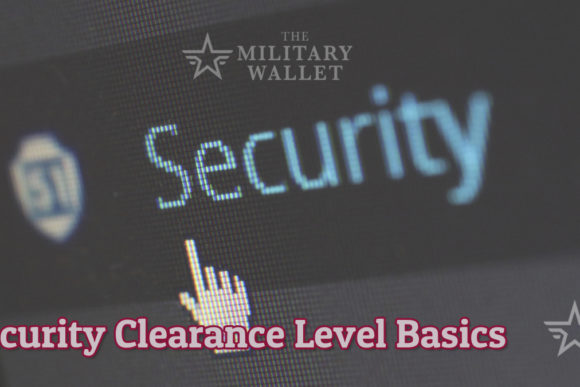While most Americans are at least vaguely familiar with the topic of security clearances — largely thanks to the popularity of government-themed TV shows and spy thrillers — there are many more details involved in the security clearance process that remain poorly understood. This article seeks to demystify clearances and the three types of security clearance levels.
For instance, what jobs require security clearances? How are they acquired? And how valuable is a security clearance (especially for transitioning or retired veterans)?
Table of Contents
What Is a Security Clearance?
In its most basic sense, a security clearance is a status granted to an individual who is required to access certain types of sensitive, non-public information on a “need-to-know” basis. Certain occupations, typically in the national security domain, require employees to obtain a security clearance in order to have access to sensitive information to perform their jobs.
The security clearance process requires a comprehensive, (at times) lengthy investigation led by the Defense Counterintelligence and Security Agency, which operates under the Department of Defense and conducts approximately 95% of the U.S. federal government’s background investigations. After an initial interview and background investigation, an adjudication process determines a candidate’s eligibility to access sensitive or classified information.
Dispelling Myths
One commonly misconstrued concept is that “having clearance” enables an individual to access any sensitive information. This is untrue: in addition to having the appropriate level of security clearance, individuals must possess sufficient “need-to-know”, meaning that they are unable to perform their jobs without access to certain sensitive information.
Security clearances are granted to both civilians and military personnel. While most holders of security clearances work either directly for the federal government or for contractors, there are some jobs in the private sector (usually defense industry or technology firms) that require security clearances at various levels.
Levels of Security Clearances
In order to regulate who has access to sensitive information (and for how long), security clearances are organized by three levels:
- Top Secret (TS)
- Secret (S)
- Confidential (C).
The highest security clearance level is Top Secret, and Confidential is the lowest. The differences between the three levels are the extent to which disclosure of protected information could threaten national security.
Security Clearance Designators
Some classified materials require not only a specific security clearance level, but are also protected by additional measures. Sensitive Compartmented Information (SCI) and Special Access Programs (SAP) are two designators, for instance, applied to specific classified materials that further restrict accessibility.
In order to access information marked SCI or SAP, an individual would need not only a security clearance at the appropriate level but also a codeword to access that “compartment” of information.
Security clearance levels are reciprocal across the federal government landscape and are not unique to any one department or agency with the exception of the Department of Energy, which has two clearance levels: “Q” and “L.”
Your job doesn’t feel “cool” enough to need a clearance? Some jobs require security clearances because of the amount of Personally Identifiable Information (PII) involved, even if their “need-to-know” related to military operations is low.
Why Might I Need a Security Clearance?
Security clearances are most frequently required when an individual is performing a job that requires access to sensitive or classified information. Roles that often require security clearances include military servicemembers, civilian defense contractors, and private information technology specialists.
However, other jobs (like secretaries, event planners, or even librarians) that ordinarily would not seem to require special access to sensitive materials may require a security clearance if an individual is working in an office where classified materials are available, or in a classified setting. Ultimately, it is up to the department, agency, or company to determine the positions that require a security clearance, and at which levels.
How to Get (and Maintain) a Security Clearance
Since security clearances cannot be purchased or self-initiated, the best way to get a security clearance is through employment. If the federal government or a private company requires that a particular security clearance level is needed, they will initiate the process.
The first step in obtaining a security clearance is a thorough and comprehensive background investigation. This is typically conducted by DSCA investigators, but contractors also perform this role.
A lengthy questionnaire (SF 86) digs deep into a candidate’s background by examining:
- Personal history
- Past jobs and addresses
- Family relationships
- Lifestyle
- Criminal background
- Time spent abroad
Additionally, the background investigators may wish to interview close family members, former neighbors, and even employers to verify the candidate’s credibility and perform an overall risk assessment. It is also common for background investigators to interrogate a candidate’s financial data, including their credit score, to inform their assessment.
The type of background investigation conducted is linked to the security level that is required; for instance, a National Agency Check with Local Agency Checks and Credit Check (NACLC) is conducted for access to Secret or Confidential information, while a more rigorous Single Scope Background Investigation (SSBI) is required for the Top Secret level and may include polygraph tests or a psychological evaluation.
After the investigation is completed, the results are studied by DSCA’s Consolidated Adjudication Facility, which is the final authority in determining who can obtain a security clearance.
Security clearances remain valid for a certain period of time (5-15 years, depending on the level) and at the discretion of the federal government or contractor. Individuals whose security clearance has expired may require a reinvestigation to renew their clearance.
Additionally, your security clearance may expire before the official expiration date if you are no longer using it. However, having already had a security clearance may make it easier to go through the vetting process again if needed.
The Value of a Security Clearance
Possessing a security clearance should not be undervalued since it can take a long time to acquire, and the process is costly for the government to conduct. Individuals holding active (that is, not expired) security clearances often have an advantage when competing for positions across the national security landscape, as many employers seek candidates that have already been vetted.
This can make it easier to be hired for a job in the civil service, federal positions, DoD contractors, and similar roles that may require a security clearance.
For transitioning servicemembers and veterans, it is important to keep track of when your last personnel security investigation was completed as well as your clearance level and its expiration date.
Also, it’s advisable to maintain an up-to-date log on past addresses and travel (both foreign and domestic) and contact information for close friends, family members, and employers (including military commanders) just in case an investigation needs to be initiated. You can keep track of this information in a file on your computer, or use a service such as Evernote. It will save you hours of time when you have to renew your security clearance or if you need to apply again.




About the comments on this site:
These responses are not provided or commissioned by the bank advertiser. Responses have not been reviewed, approved or otherwise endorsed by the bank advertiser. It is not the bank advertiser’s responsibility to ensure all posts and/or questions are answered.